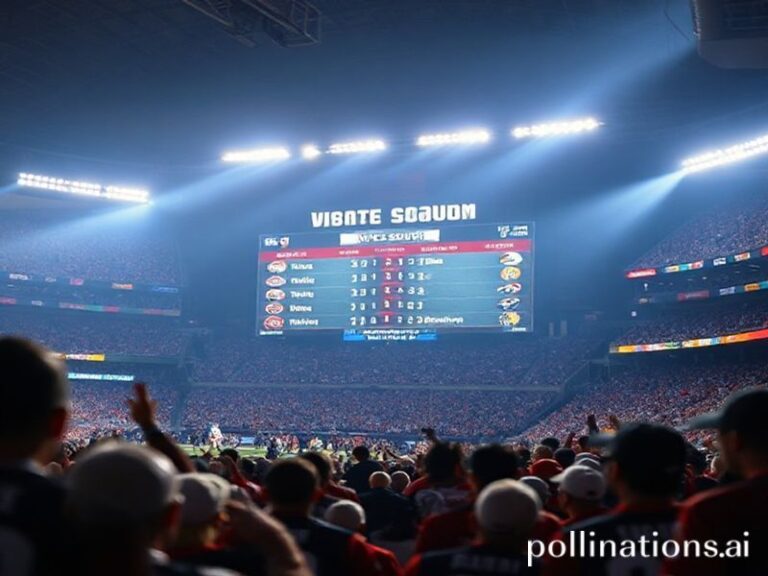Joby Stock’s Global Sky-Dance: When Flying Taxis Meet Planetary Delusion
Joby Aviation—ticker JOBY, for those who still think stock symbols are secret handshakes rather than lottery scratchers—has spent the past week flapping around global markets like a drunken albatross on Red Bull. The California-based maker of electric vertical take-off and landing (eVTOL) aircraft is, depending on whom you ask, either the Uber of the stratosphere or the Theranos with propellers. Either way, its share price has become the world’s most expensive mood ring, color-shifting with every regulatory cough from Washington to Wellington.
The latest convulsion began when Japan’s Ministry of Land, Infrastructure, Transport and Tourism issued a tentative “maybe” on air-taxi corridors above Tokyo Bay. Markets, ever allergic to nuance, translated the bureaucratic shrug as “Samurai-level commitment,” sending JOBY up 18 % in after-hours trading. By the time European bourses opened, the rally had migrated across time zones like a financial norovirus, infecting Frankfurt eco-transport ETFs and even nudging Airbus to remind everyone that it, too, once built flying things that weren’t grounded by paperwork.
From a planetary perspective, JOBY’s spasms are less about flying taxis and more about humanity’s desperate hunt for the next “clean” miracle that lets us skip penance for two centuries of coal and cow flatulence. In São Paulo, where commuters already treat helicopters like buses with better views, analysts wonder if eVTOLs will merely add a silent layer of gridlock above the audible one. Meanwhile, Lagos entrepreneurs—ever the free-market opportunists—are pricing rooftop landing pads by the square meter, betting that when African megacities finally take off, they’ll do so literally.
The irony, of course, is delicious. Western investors trumpet JOBY as the savior of urban mobility, yet the company still burns cash faster than a Russian gas flare. Its path to profitability rests on regulators harmonizing their neuroses across 195 countries, a task roughly equivalent to getting the United Nations to agree on lunch. Still, hope springs eternal in the brokerage heart: Morgan Stanley’s latest note upgraded the stock to “Overweight,” which in plain English means “Please ignore that we were neutral last quarter and wrong the quarter before.”
Zoom out and the spectacle becomes a morality play about late-stage capitalism. We’ve reached the point where a firm with zero revenue can command a multi-billion-dollar valuation on the promise of whisking hedge-fund managers above traffic jams they helped create by shorting public transit. If that isn’t poetic, what is? Even the Chinese, who usually prefer copy-and-paste innovation, are watching with the wary respect one gives a toddler juggling knives: admirable dexterity, probable carnage.
Yet beneath the snark lies a kernel of geopolitical import. Whoever masters quiet, electric flight first owns the commuter skies of the 2040s—and the data harvest that comes with knowing where every mid-level executive has brunch. It’s why the UAE’s sovereign wealth fund has taken a polite nibble at JOBY, and why South Korea’s SK Telecom is sniffing around for a joint venture. The subtext: if you can’t beat Boeing or COMAC at long-haul jets, leapfrog them entirely and plant your flag three hundred meters above their factories.
Will JOBY soar or become another Icarus with better branding? Your guess is as good as the algorithm currently front-running your retirement fund. For now, the stock remains a Rorschach test: optimists see Blade Runner minus the rain; pessimists see WeWork with wings. The rest of us can only buckle up, order another overpriced airport martini, and appreciate the cosmic joke that humanity’s escape from gridlock is… another traffic lane, just vertical.
In the end, JOBY’s real product may not be aircraft at all, but the timeless allure of a shortcut—preferably one that lets us bypass both the 405 and our own culpability. Fasten your seatbelts, dear readers; turbulence is merely the market’s way of reminding us that gravity, like karma, still works pro bono.







